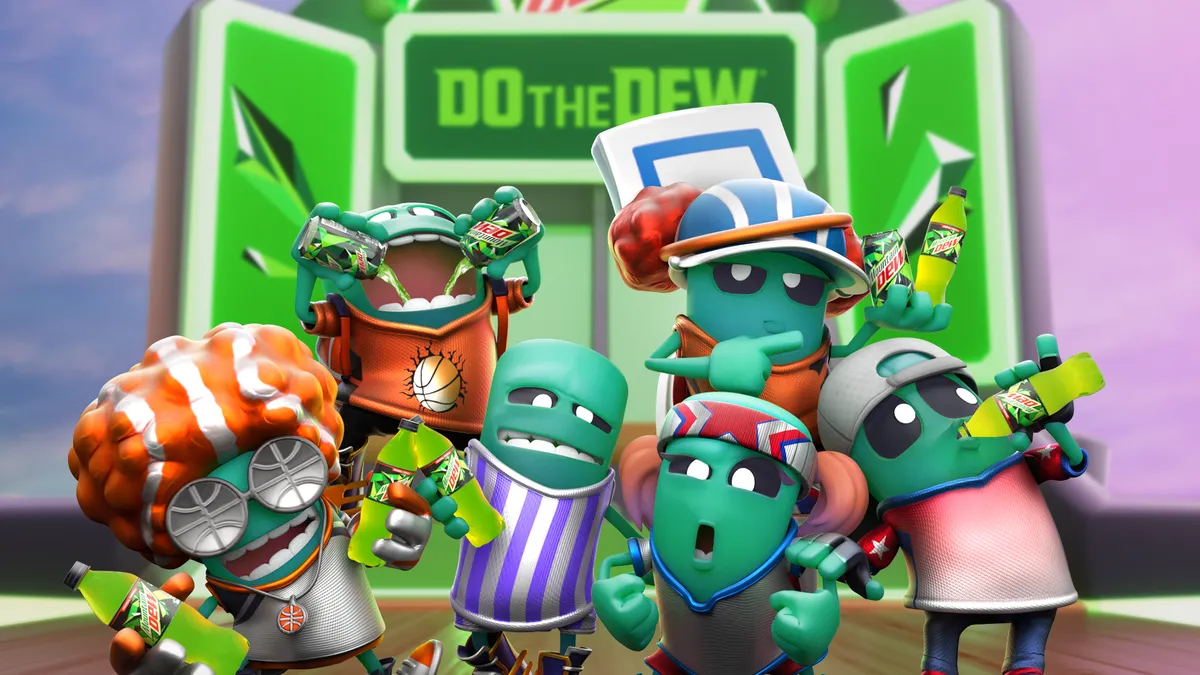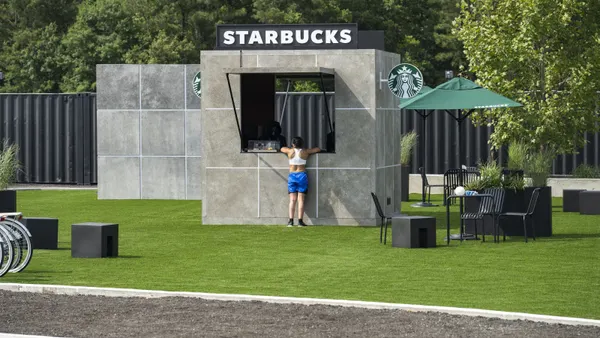PepsiCo hasn't been shy about where it's placing its media bets following a year that saw a stark acceleration of cord-cutting and e-commerce adoption. As the owner of Pepsi, Mountain Dew and Frito-Lay adjusts for a more digitally oriented and direct-to-consumer (DTC) future, it's relying on outside expertise to fill gaps in its knowledge and help brands engage people operating in increasingly ad-free environments like subscription video on-demand platforms (SVODs).
"We understand that the marketplace continues to fragment, that media consumption is very different than what it was five, 10 years ago," said Kate Brady, head of media innovation and partnership development at PepsiCo. "It's a core focus of ours to make sure that, whatever we're doing, we're future-proofing our business to ensure we can stay connected with our audiences."
Two years ago, the food and beverage behemoth created a venture arm called PepsiCo Labs to seek out startups around the world that could put its business on the leading edge. The pandemic has reinforced the value of the program as digital trends previously expected to be years off from the mainstream started to take hold in mere months.
PepsiCo Labs' current round of partnerships speak to disruptions specific to COVID-19, with a focus on virtual experiences and enabling faster decisions in production and media-planning. But the pace of transformation is unlikely to cool even with the promise of a reopening, while other bumps in the road — including the death of the third-party cookie — mean marketers will continue to retool their strategies in the months ahead.
"Things are changing so rapidly now, we really need to be continuing to evolve," Brady said. "The goal is, as often as we can, to scale those successes across the organization."
Fostering innovation
PepsiCo Labs follows a four-phase playbook in its search for upstarts: opportunity, discovery, pilot and scale. A small team that includes Brady and David Schwartz, vice president of technology venturing and innovation, first polls business leads from across PepsiCo to identify shared challenges between the organization's brands. The unit next speaks with dozens of venture capital firms and entrepreneurs to identify the right startup partners, works with those partners on pilot programs and then scales the most successful offerings.
Hundreds of startups can be considered in the running in a given year, but only a handful usually make it to the final steps. The process, in total, typically takes six to 10 months depending on the startup in question, according to Brady.
"We take this as a very rapid sprint through the process, because what we want to do is really quickly identify what the solution is, test it, make sure it works and then scale as quickly as possible," Brady said.
One tie-up moving through the pilot phase is Mountain Dew's work with Green Park, a virtual experiences platform that the soda brand deployed around the current NBA season, including its sponsorship of the league's 3-Point Contest. Through Green Park's offering, fans can bet on and predict players' shots — a nod to the burgeoning market for sports betting in the U.S. — and test their knowledge of previous games.
Mountain Dew became the sponsor of the event airing around All-Star Weekend last year.
"It allows them to gamify this fandom process as well to potentially win points where they can get fan merchandise," Brady said of Green Park. "We love the idea of additional gamification and these virtual platforms that fans can immerse themselves in."
CreativeX, another partner, uses artificial intelligence (AI) to predict where digital assets will perform best, and also analyzes the success of past efforts. The media efficiency solution, now being scaled globally, squares with how other marketers are trying to wrest greater control over their spend after years of criticizing the digital ecosystem for producing too much waste.
"With so much more investment for us going into the digital space, and [PepsiCo] really needing every dollar of ours to work harder than the last, we want to make sure that anything that we're publishing into the marketplace is going to be as strong as possible," Brady said.
Finally, PepsiCo has tied up with a company called Mirriad that applies computer vision technology to insert products and messages into existing content. PepsiCo picked the service to account for the uptick in ad-free streaming services, many of which carry programs that feature outdated product integrations. Through Mirriad, older placements — whether they be billboards or cans shown on screen — can be refreshed.
"Similar to challenges in media fragmentation — cord-cutting, cord-nevers, people just leaning into SVOD platforms that don't offer traditional ad placements — Mirriad offers a solution where we can connect with our consumers in the content that they're actually already engaged in," Brady said. She noted that traditional product placement, while effective, is often a monthslong process that involves fixed assets that are difficult to change.
PepsiCo tested the Mirriad concept on eight Univision telenovelas, according to Brady, initially focusing on the Pepsi brand before broadening use cases to Quaker, Lay's and Mountain Dew. The company is now in discussions to bring Mirriad's tech to its Latin American and European markets.
"Because it's digitally inserted, we can adapt the creative," Brady said. "If it's an older piece of content, it might be an older package; this offers us the opportunity to update the assets to be very current and to the right message that we're trying to speak to now, and ideally, to be able to serve specific messages based on targeting cues as well."
In the same way that startups lend PepsiCo outside know-how needed to navigate a fast-changing market, PepsiCo can give fledgling businesses greater reach and exposure that would otherwise be difficult to achieve.
"One of the bigger challenges of working with a partner like Mirriad is they're still a nascent technology and they need help building out their content slate," Brady said. "They were able to bring to us the relationship that they had built with Univision, but as we look to continue to scale this, we've brought and made those relationship connections with some of our bigger partners."
What's next
Even with some pandemic-related challenges receding through vaccination efforts, the spotlight on digital is unlikely to wane and will continue to inform PepsiCo's venturing efforts. The company is centering its resources on reaching personalization at scale, a goal made more complicated by the deprecation of ad-targeting tools like cookies.
At the same time, PepsiCo is diving further into e-commerce and DTC offerings to cater to shoppers who are now comfortable buying snacks and beverages online. Drawing a clearer link between content and direct sales, in turn, puts a higher premium on performance marketing.
"Performance marketing becomes a much more important area where, again, we need to ensure we have the strongest capabilities across our organization," Brady said.
Other blue-chip marketers are wrestling with similar problems as pressures around data acquisition and media optimization mount. Yum Brands, the owner of KFC, Taco Bell and Pizza Hut, has turned to acquisitions to round out its capabilities. The quick-service giant recently bought the AI business of performance marketing firm Kvantum — a deal intended to help the marketer make more informed media-planning and calendar decisions — and the conversational commerce developer Tictuk Technologies.
While M&A isn't strictly out of the cards for PepsiCo, Brady indicated that leaning on partnerships will be more important as the Labs unit gears up for its next round of outreach later in the spring.
"Our focus is to primarily partner with [startups] on a marketing perspective versus an M&A [one]," Brady said. "We do have a tech venturing team that is invested in looking for those best solutions. I think that's always on the table if it's the right choice for PepsiCo."













